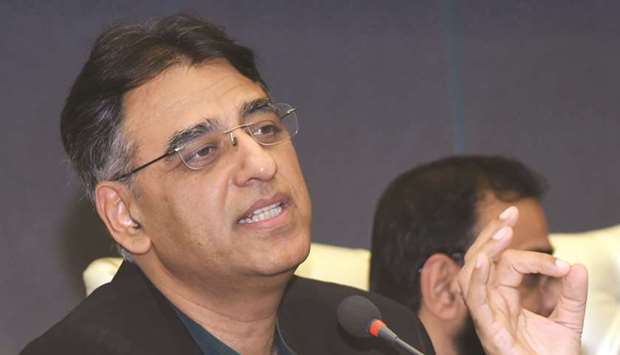Pakistan now has a foreign policy that is economically beneficial for the country because the state cannot achieve national security without economic independence, says Finance Minister Asad Umar.
Meeting business leaders at the Federation of Pakistan Chambers of Commerce and Industry (FPCCI) over the weekend, he spoke of the economic challenges faced by the government and how he had been working to address them.
“Our foreign policy will now be driven with economic goals because we cannot achieve national security without economic independence,” Umar said.
Earlier, during his visit to the Pakistan Stock Exchange (PSX), Umar said that it would be the last time Pakistan would be approaching the International Monetary Fund (IMF) for a bailout package.
While talking about the importance of access to finance for small and medium enterprises (SMEs), the minister said that the finance ministry is looking to incentivise the financing for SMEs.
He said that Pakistan has a high cash-to-deposit ratio of 37%, which was more than double the Bangladesh’s 16%.
“We are trying to bring the ratio down to 25%, which will increase deposits by Rs2tn,” he said, adding that people have asked him about the source of financing for government’s housing scheme.
“It will come from here,” Umar replied, hinting at the deposits.
While talking about the real estate sector, which is said to have provided an avenue for parking “black” money, Umar said while the government did not want to raise tax rates, more transparency is needed.
“We have two asset classes, one is shares (at the stock exchange) and the other is the real estate. One is highly transparent, but the other is not,” he said.
The buying and selling of land takes place at highly under-quoted prices, Umar said, adding that there should be transparent procedures to ascertain the land price.

Umar: Our foreign policy will now be driven with economic goals because we cannot achieve national security without economic independence.
